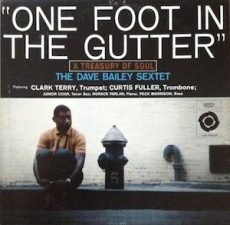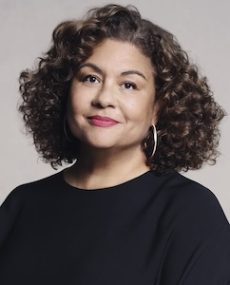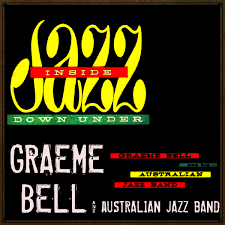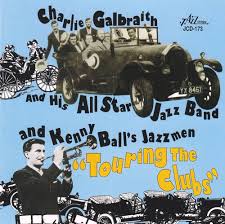
Daily Dose Of Jazz…
Gerald Graham Valentine was born on September 13, 1914 and received formal training in music when he was young, learning piano, composition, and music theory. He learned to play the trombone on his own.
In the early 1940s Jerry composed and arranged for Earl Hines and worked in Chicago with Dallas Bartley, King Kolax and he booked shows for the Club DeLisa. He then joined Billy Eckstine’s band from 1944 to 1947 and worked later in the decade with Wynonie Harris and Buddy DeFranco.
From 1950 to 1952 Valentine was an artist and repertory man for National Records. He played with Gene Ammons in 1954, and in 1958-1959 wrote arrangements for Pepper Adams, Art Farmer, and Coleman Hawkins in the group Prestige Blues Swingers.
Trombonist, composer and arranger Jerry Valentine died in October 1983.
More Posts: arranger,composer,history,instrumental,jazz,music,trombone

Daily Dose Of Jazz…
Peck Morrison was born John A. Morrison on September 11, 1919 in Lancaster, Pennsylvania. He was classically trained, and in addition to bass, being competent on trumpet and percussion was also his talent.
During World War II he played in military bands in Italy and after the war he moved to New York City to play professionally. He played with Lucky Thompson in the early 1950s, and then recorded with Horace Silver, Gigi Gryce, and Art Farmer. He played and toured Europe with Gerry Mulligan.
He was a noted accompanist and sideman with Carmen McRae, Tiny Bradshaw, King Pleasure, Zoot Sims, Dave Bailey, Betty Carter, Eddie Jefferson, the J. J. Johnson/Kai Winding Quintet, and Duke Ellington in the Fifties and the latter in the 1960s.
He performed or recorded in the Sixties with Lou Donaldson, Johnny Smith, Mal Waldron, Randy Weston, Babs Gonzales, the Newport Rebels, Shirley Scott, Red Garland, Charles McPherson, and Sy Oliver. In 1986 he performed as a member of the Harlem Blues and Jazz Band.
Bassist Peck Morrison, who never recorded as a session leader, died on February 25, 1988.
More Posts: bandleader,bass,history,instrumental,jazz,music

Jazz Poems
FOUR BONGOS: TAKE THE A TRAIN for Vinnie
The drummer wears suspenders to look like an old-timer, and plays a salsa “Caravan,” bad boy from the panyard with an evil, evil beat. The conga man chants Yoruba and shakes his sweat loose on a girl up front. His hand worries the drum like a live fish trashing. Call the bassist “Pops,” with his grizzly goatee, his Banshee yelp, his rhumba step. The hall is fluorescent. “Take a Train,” Lawrence Welk called that tune, and played. Ellington hovers above this group like changeable weather, in gabardine. ELIZABETH ALEXANDERfrom Jazz Poems ~ Selected and Edited by Kevin Young
More Posts: book,classic,collectible,history,jazz,library,poet

Daily Dose Of Jazz…
Graeme Emerson Bell was born on September 7, 1914 in Richmond, Victoria, Australia. His father performed musical comedy and music hall on the early Australian Broadcasting Commission radio, and his mother was a contralto recitalist in Dame Nellie Melba’s company.
From the age of 12, Bell had weekly piano lessons in classical music by Jesse Stewart Young, a contemporary of his mother. He attended Scotch College in 1929 and 1930, leaving school at sixteen during the Great Depression and worked for T & G Insurance as a clerk for over nine years, and had a stint as a farm hand. He paid for his own piano lessons for two further years, and in later years he supplemented his income by teaching.
Graeme was converted to jazz by Roger, a drummer, who later became a singer and trumpete. Roger would play 78s on the family’s record player, including Fats Waller’s Handful of Keys. It was in 1935 that he started playing jazz with Roger at Melbourne dances and clubs. By 1941 he fronted his own Graeme Bell Jazz Gang. Unfit for active duty during World War II, he entertained Australian troops, including travelling to Mackay, Queensland in early 1943. After his return to Melbourne, Bell became a full-time professional with the Dixieland Jazz Band.
His first recordings were for William Miller’s Ampersand label in 1943, after which he became leader of the house band for the Eureka Youth League and established a cabaret, the Uptown Club, in 1946. After playing at the inaugural Australian Jazz Convention, Bell’s band was renamed Australian Jazz Band and became the first such band to tour Europe.
The Australian Jazz Band travelled to the United Kingdom in early 1948 and Graeme started the Leicester Square Jazz Club, playing music specifically for dancing, which continued into the 1950s. Many future and contemporary bands were to be influenced by his music. During the early 1950s he periodically returned to UK and Europe to perform, and in 1951 they appeared at Oxford Town Hall with the performance ultimately released as Big Bill Broonzy in Concert with Graeme Bell & his Australian Jazz Band.
Upon returning to Australia he settled in Sydney and became one of the leading promoters of jazz in the country, bringing American performers such as trumpeter Rex Stewart. He played commercial music and taught piano to supplement his income.
Pianist Graeme Bell, wrote Graeme Bell, Australian Jazzman, was inducted into the Australian Recording Industry Association Hall of Fame in 1997 and made over 1,500 recordings, died on June 13, 2012 after suffering from a stroke at 97.
More Posts: bandleader,history,instrumental,jazz,music,piano

Daily Dose Of Jazz…
Charlie Galbraith was born August 13, 1920 in Lambeth, London, England. In the late 1940s he worked with the John Haim Jelly Roll Kings, Cy Laurie, Reg Rigden and Mike Daniels.
From 1949 to 1954 Charlie led his own group, Jazzmen and in late 1954 with Eric Silk, Bobby Mickleburg the following year, George Webb, Joe Daniels and Kenny Ball for two years beginning in 1957.
1960 saw Galbraith leading his own All Stars Jazz Band and in 1963 co-led with trumpeter Brian Jones. He later worked with Monty Sunshine and Joe Daniels through the end of the decade.
During the 1970s and Eighties he led his own band. Trombonist and singer Charlie Galbraith died January 16, 1997 in London, England.




